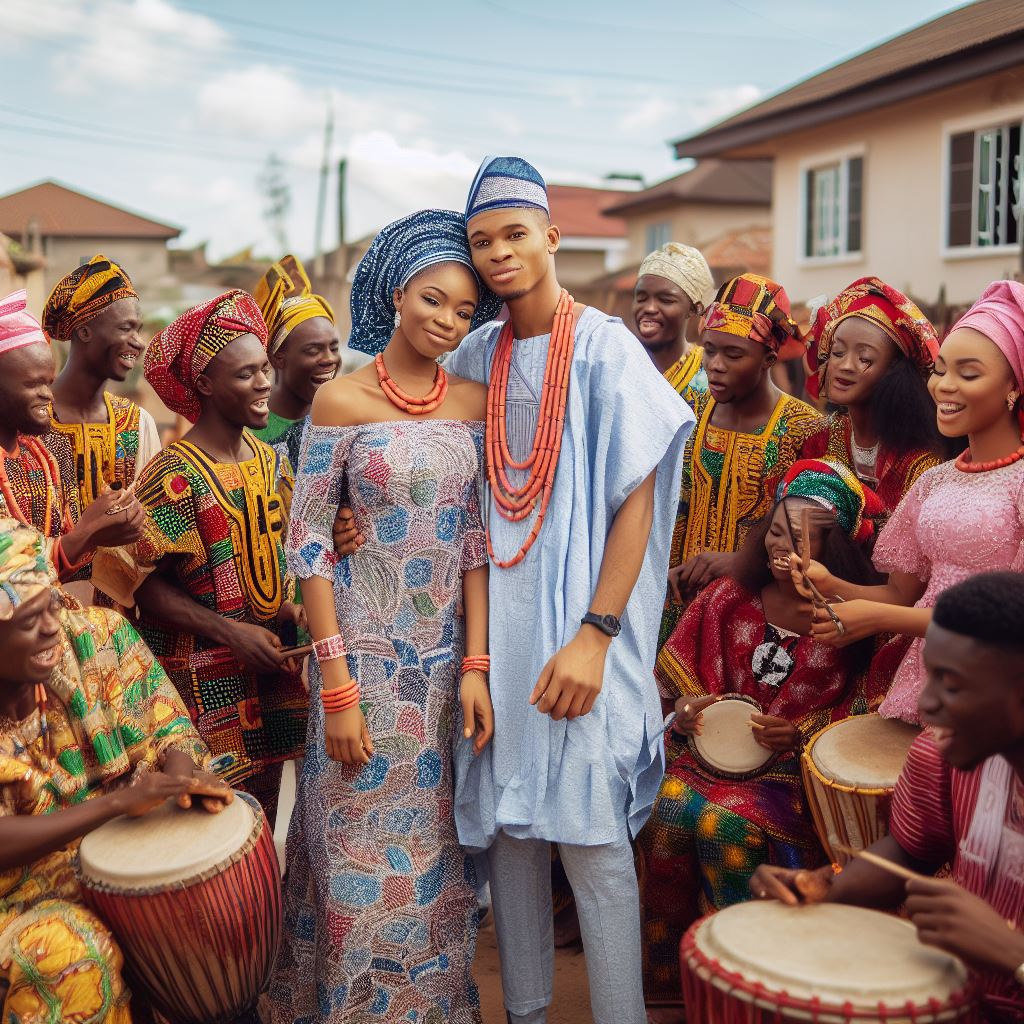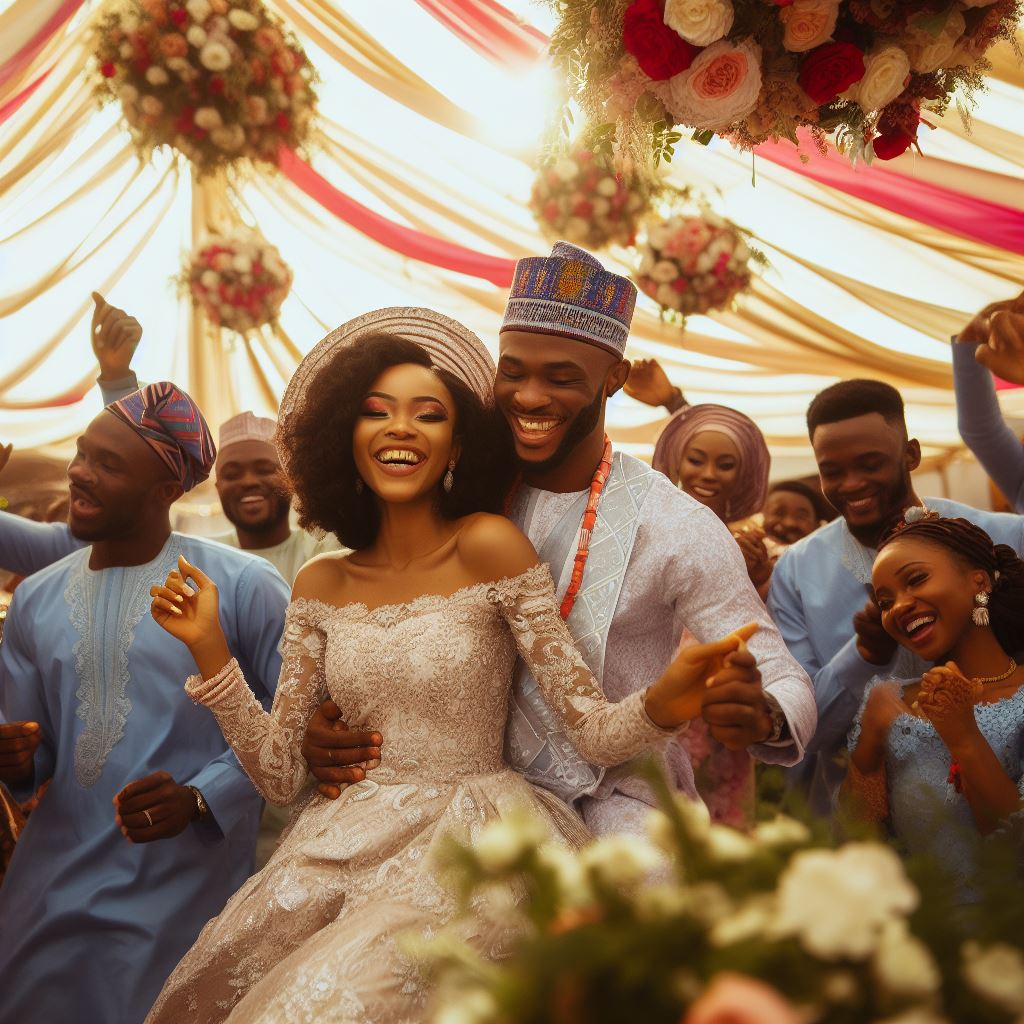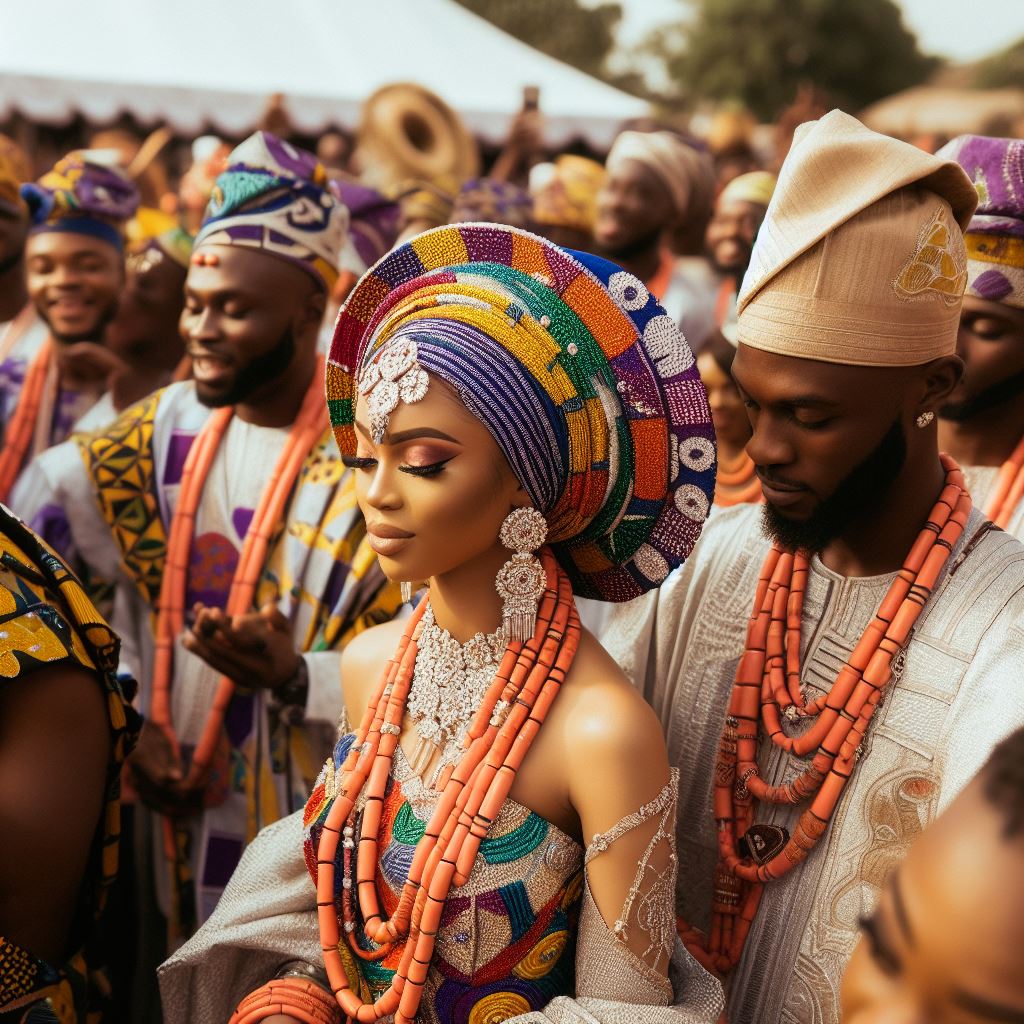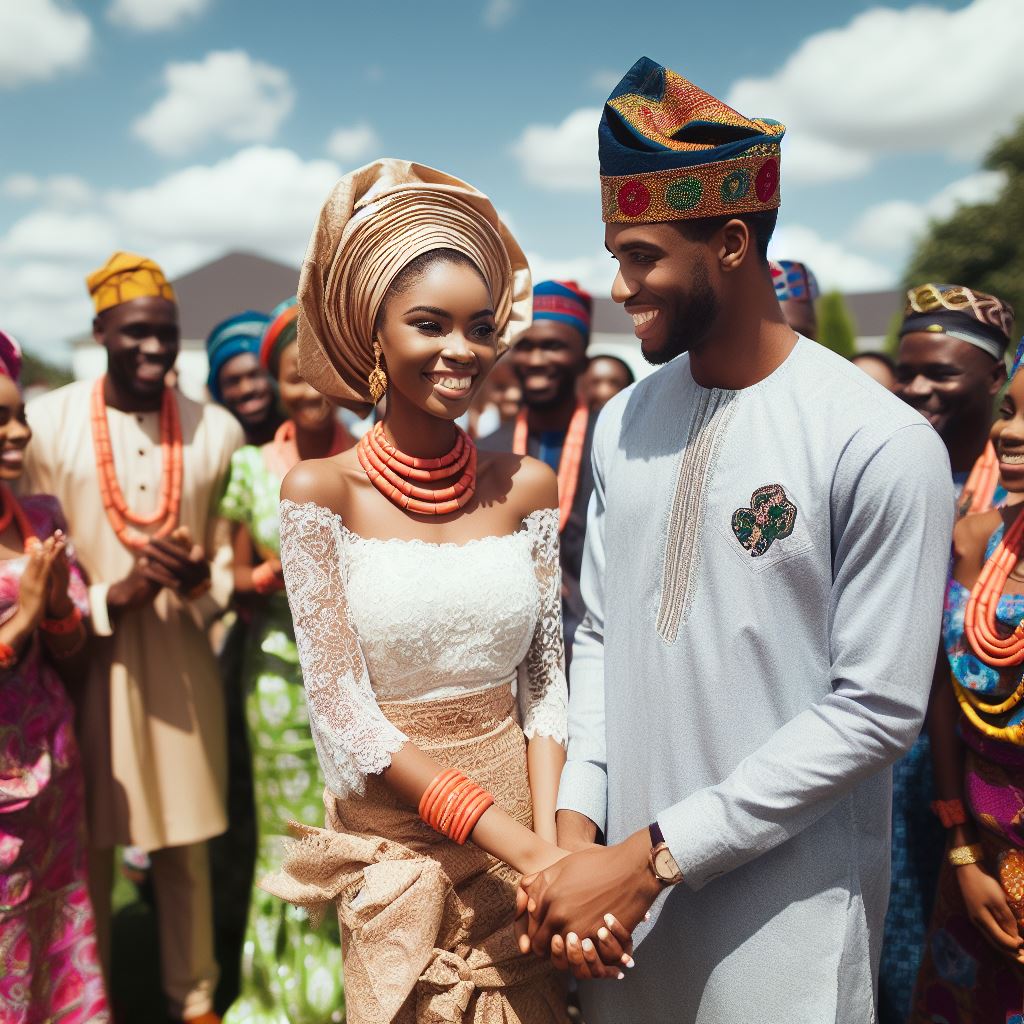Introduction
Background on monogamy in Nigerian society
Monogamy, the practice of having only one spouse at a time, has been a long-standing tradition in Nigerian society.
For generations, monogamy has been seen as the ideal form of marriage, representing loyalty, commitment, and family values.
However, in recent years, there has been a noticeable shift in the perception of monogamy among Nigerians.
Explanation of changing perceptions
Changing societal norms, influenced by globalization and modernization, have challenged the traditional concept of monogamy.
People are now questioning the necessity of limiting themselves to one partner for life, and alternative forms of relationships are gaining acceptance.
This shift in perception is not only evident among the younger generation but also among older, more conservative individuals.
Therefore, this section aims to explore the changing perceptions of monogamy in Nigerian society and its implications on marriage dynamics.
By examining the factors driving this change and the varying attitudes towards monogamy, we can gain a deeper understanding of how these evolving views are shaping the institution of marriage in Nigeria.
Traditional perspective on monogamy in Nigerian
Definition of monogamy
Monogamy can be defined as the practice of being married to only one person at a time.
It is a social norm that restricts individuals from having multiple spouses simultaneously.
Cultural and religious influences on the perception of monogamy
In Nigerian society, culture and religion have played significant roles in shaping the perception of monogamy.
Traditional values and beliefs emphasize the importance of fidelity and commitment in marital relationships.
Religious teachings, particularly in Islam and Christianity, promote monogamy as the ideal form of marriage.
Importance of monogamy as a societal norm
Monogamy is seen as the foundation of stable families and the building block of society.
It fosters trust, emotional intimacy, and long-term commitment between spouses.
Monogamy reduces the chances of conflicts arising from polygamous marriages, such as jealousy and competition among spouses.
Role of family and community in upholding the concept of monogamy
In Nigerian society, the family and community play crucial roles in upholding the concept of monogamy.
Parents teach their children about the importance of monogamy and the negative consequences of infidelity.
Communities often frown upon extramarital affairs and provide support to couples who adhere to monogamous relationships.
Additionally, traditional rulers and religious leaders advocate for monogamy and discourage practices that undermine it.
Monogamy holds deep significance in Nigerian society, shaped by cultural, religious, and societal influences.
It is valued as a means to maintain stable families and promotes trust and commitment among spouses.
The strong emphasis on monogamy can be attributed to the role of the family, community, and traditional institutions in upholding its importance.
By embracing monogamy, Nigerians continue to navigate societal changes while preserving their cultural values and beliefs.
Read: Cultural Impact of Reality TV: ‘Married at First Sight’ in Nigeria
Factors contributing to changing perceptions of monogamy
Influence of Western education and exposure
The introduction of Western education and exposure to different cultures has played a significant role in changing perceptions of monogamy in Nigerian society.
Impact of globalization and social media
The advent of globalization and the rise of social media platforms have brought about a shift in perspectives on monogamy.
Social media has provided a platform for sharing ideas, opinions, and experiences related to relationships, which has influenced Nigerians’ perceptions of monogamy.
Changing economic dynamics and women empowerment
The changing economic dynamics in Nigeria, along with the empowerment of women, have contributed to altering perceptions of monogamy.
As more women become financially independent and actively participate in the workforce, traditional gender roles within marriages are being challenged.
Rise in divorce rates and extramarital affairs
The increase in divorce rates and extramarital affairs has played a significant role in changing perceptions of monogamy in Nigerian society.
These occurrences have brought attention to the limitations and challenges of monogamy, leading to a reevaluation of its importance and relevance.
Read: Comparing Traditional Arranged Marriages & ‘Married at First Sight’
Shift towards acceptance of alternatives to monogamy
Emergence of polygamous marriages
One alternative to monogamy that has gained acceptance is polygamous marriages. Polygamy has been a longstanding practice in Nigerian culture, particularly in the northern parts of the country.
However, in recent years, there has been a resurgence in polygamy even in urban areas, reflecting a shift in societal attitudes towards multiple marriages.
Rise of serial monogamy and multiple marriages
Another alternative to traditional monogamy is the rise of serial monogamy and multiple marriages. In the past, divorce was frowned upon and considered taboo.
However, in modern Nigerian society, divorce rates have been increasing, allowing individuals to remarry and engage in multiple marriages throughout their lifetime.
Acceptance of cohabitation and non-marital relationships
Nigerian society has also witnessed a growing acceptance of cohabitation and non-marital relationships. In the past, these types of relationships were stigmatized and considered immoral.
However, as societal norms evolve, more young couples are choosing to live together without getting married, and these relationships are gradually being accepted as valid forms of companionship.
Increase in the number of divorces
Furthermore, an increase in the number of divorces in Nigeria has contributed to the changing perceptions of monogamy.
Divorce was once seen as a disgraceful act, with societal pressure often forcing couples to stay in unhappy marriages.
However, as divorce becomes more common and socially acceptable, individuals are empowered to leave unhappy relationships and pursue alternatives to monogamy.
Nigerian society is experiencing a gradual but noticeable shift towards acceptance of alternatives to monogamy.
Contributing factors to this evolution in perceptions include the emergence of polygamous marriages and the rise of serial monogamy.
And multiple marriages, as well as the acceptance of cohabitation and non-marital relationships.
Additionally, there has been an increase in the number of divorces.
As societal norms continue to evolve, it is likely that the acceptance of these alternatives will continue to grow, shaping the future of relationships in Nigerian society.
Read: Reasons Nigerians Are Hooked on ‘Married at First Sight’ Shows
Implications of changing perceptions on Nigerian society
Shifting gender roles and expectations within marriages
- Changing perceptions on monogamy in Nigerian society have begun to shift traditional gender roles.
- Women are now more empowered to pursue careers and aspirations outside of their marriages.
- Men are adjusting their expectations and becoming more supportive of their wives’ ambitions.
- This shift in gender roles within marriages signifies a more equitable and progressive society.
Influence on family structures and dynamics
- Changing perceptions of monogamy in Nigeria are reshaping the traditional definition of family.
- Families are becoming smaller as monogamy becomes more widely accepted and practiced.
- This change impacts the dynamics and relationships within nuclear families.
- Parents can now focus more on individual child development and offer better support.
Impact on the legal system and marriage legislation
- The changing perceptions of monogamy in Nigerian society are influencing marriage legislation.
- Legal systems are now more accommodating of diverse marital arrangements.
- The concept of monogamy is being reevaluated to include other mutually consensual relationship structures.
- This change promotes a more inclusive and progressive legal framework for marriages in Nigeria.
Effect on social and cultural traditions surrounding marriage
- Changing perceptions of monogamy challenge traditional social and cultural norms surrounding marriage.
- Society is becoming more accepting of non-traditional forms of marriage.
- The stigma surrounding divorce and remarriage is diminishing, allowing individuals greater freedom.
- This shift leads to a more tolerant and diverse society, respecting individual choices and happiness.
The changing perceptions of monogamy in Nigerian society have far-reaching implications. Shifting gender roles within marriages promote gender equality and empower women.
Family structures are evolving to become smaller, but with increased focus on individual development.
The legal system is adapting to accommodate diverse marital arrangements, fostering inclusivity.
Social and cultural traditions surrounding marriage are becoming more accepting of non-traditional relationships, promoting tolerance and diversity.
Overall, these changing perceptions signify a positive step towards a more equitable and progressive Nigerian society.
Read: Navigating the First Year: Advice for Quick Marriages in Nigeria
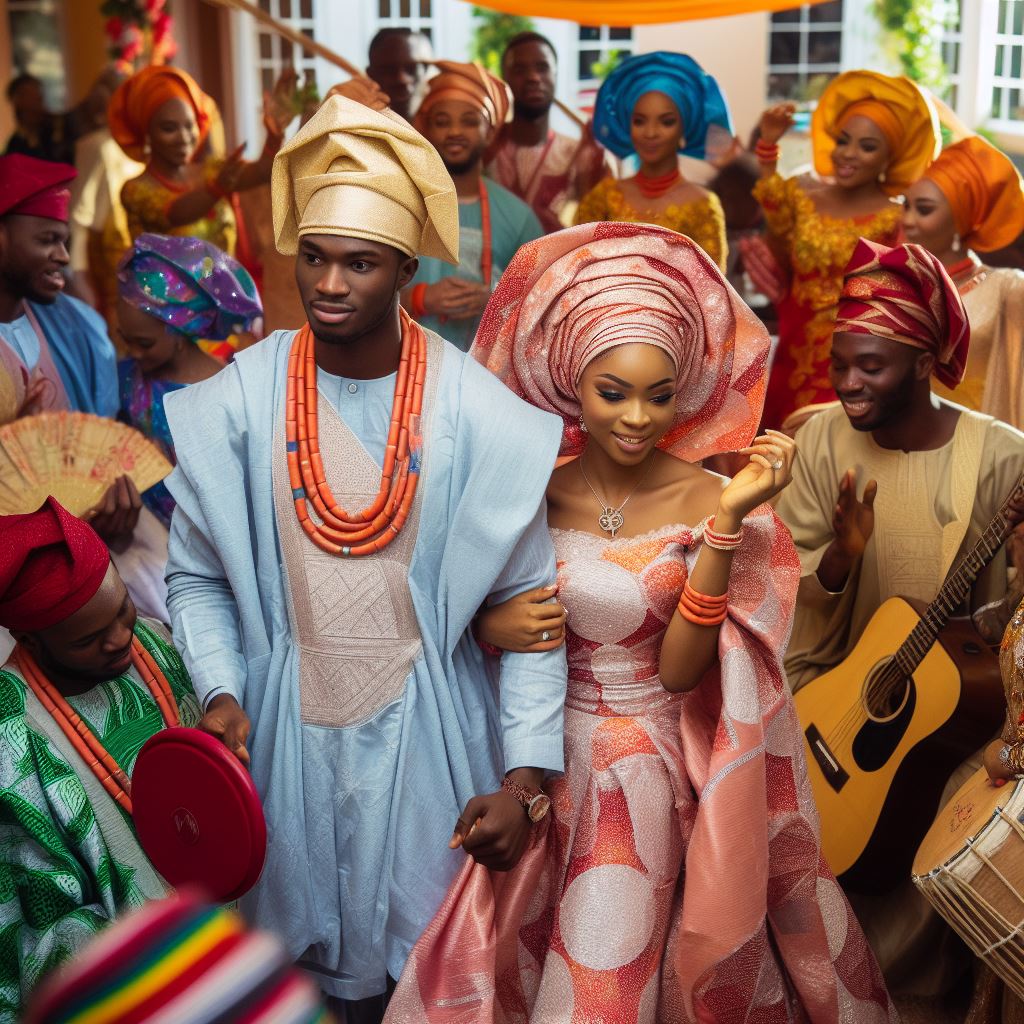
Challenges and Controversies Surrounding Changing Perceptions
Resistance from Conservative Elements in Society
- Traditionalists in Nigeria strongly oppose the shifting perception towards monogamy.
- They argue that it goes against cultural values and religious beliefs that support polygamy.
- These conservative elements fear that embracing monogamy will erode their heritage and traditions.
- Religious leaders also play a significant role in discouraging the acceptance of monogamy in Nigerian society.
Conflicting Views on the Institution of Marriage
- Changing perceptions regarding monogamy have sparked heated debates about the institution of marriage.
- Some argue that monogamy is a Western concept that should not override traditional Nigerian practices.
- Others believe that monogamy is essential for fostering trust, equality, and emotional intimacy in relationships.
- These conflicting views create tension and division within Nigerian society regarding the practice of monogamy.
Potential Negative Consequences for Children and Family Stability
- Critics of changing perceptions towards monogamy claim it can disrupt family stability and negatively affect children.
- They argue that children may suffer emotionally and psychologically from the absence of both parents.
- Supporters of monogamy, on the other hand, believe that it provides a more stable and nurturing environment for children.
- The impact of changing perceptions on children and family dynamics remains a subject of intense debate.
Economic Implications of Increased Divorce Rates and Multiple Marriages
- Shifting perceptions towards monogamy have led to an increase in divorce rates and multiple marriages.
- This phenomenon has economic implications, as it can lead to financial strain on families.
- Divorces often involve the division of assets, leading to financial instability for both parties involved.
- Additionally, the financial burdens of supporting multiple households are a concern for those embracing monogamy.
- Society must address these economic consequences and find ways to mitigate them.
The changing perceptions surrounding monogamy in Nigerian society are not without challenges and controversies.
Conservative elements in society resist this shift, believing it goes against cultural values and religious beliefs. The conflicting views on the institution of marriage further intensify the debate.
Critics express concerns about the potential negative consequences for children and family stability, while economic implications arise from increased divorce rates and multiple marriages.
These challenges highlight the need for open dialogue and proactive measures to ensure a balance between tradition, personal choice, and societal progression.
Conclusion
Recap of changing perceptions of monogamy in Nigerian society
Over time, monogamy in Nigerian society has shifted from being an unquestioned norm to a more nuanced perspective.
Importance of understanding the evolving nature of marriage dynamics
It is crucial to recognize the impact of societal changes, such as urbanization and globalization, on monogamy.
Call for further research and discussions on the topic.
There is a need for more comprehensive studies and open dialogues to understand the complexities surrounding monogamy in Nigerian society.
Final thoughts on the future of monogamy in Nigerian society
While monogamy may continue to be valued, it is likely to coexist with alternative relationship models as societal norms continue to change.

